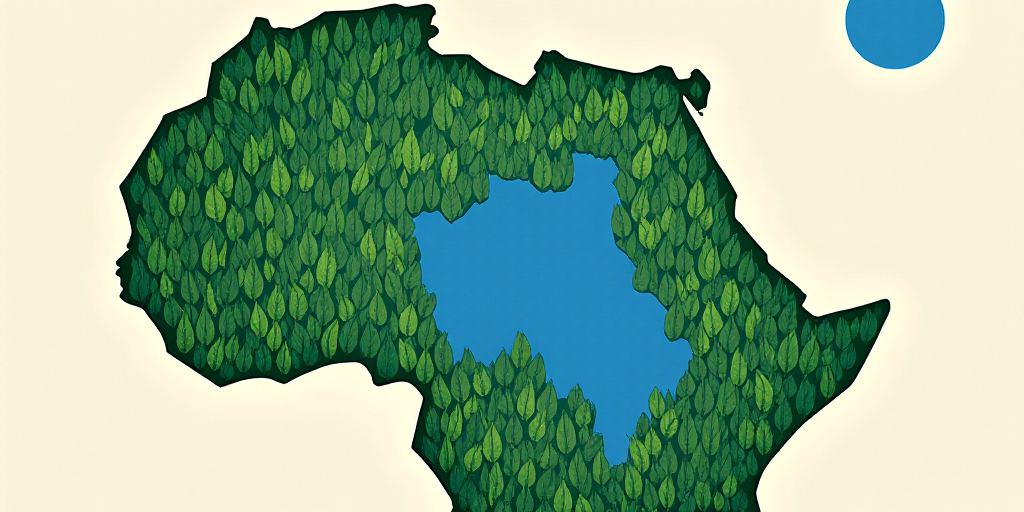Introduction
We are entering a new era marked by profound geopolitical shifts, reduced development assistance, rising trade barriers, and escalating global conflicts. Amidst these challenges lies a historic opportunity to foster the creation of innovative global partnerships based on mutually beneficial investments and shared values.
Africa’s Central Role
Africa holds a central position in these efforts, with some of the fastest-growing economies and abundant renewable energy sources (wind, solar, geothermal, and hydro). The continent also possesses more than a fifth of the critical minerals essential for the green transition. However, to turn Africa’s growth potential into reality, a level playing field is essential. This requires addressing the growing debt crisis threatening decades of hard-won development progress.
The Magnitude of the Crisis
In 2023, low- and middle-income countries allocated $1.4 trillion to external debt servicing, with African nations often facing higher interest rates and penalties. This forces them to divert critical resources from essential areas like education, healthcare, and climate resilience to repay loans under onerous conditions.
Currently, over half of African countries allocate more funds to debt repayment than healthcare. Malawi, for example, spends twice as much on debt servicing as on education, effectively condemning a growing segment of its youth to ignorance, unemployment, and poverty.
Structural Inequalities in the Global Financial System
While African governments must commit to sound fiscal management and accountability, the continent’s financial dilemma stems not only from poor budgetary management or reckless borrowing but also from structural inequalities within the global financial system.
African sovereign borrowers face exorbitant interest rates in international capital markets, even compared to countries with similar or worse credit histories. This “African premium” persists despite the continent’s relatively low default rates.
Forced Borrowing Due to Climate Change
Moreover, African nations have no choice but to borrow as they are on the frontlines of a climate crisis they did not create. Countries like Kenya, Malawi, and Mozambique have had to assume significant debts to recover from increasingly frequent and severe natural disasters.
Small island developing states like Mauritius must borrow just to survive rising sea levels. Global phenomena such as the COVID-19 pandemic, global inflation, and rising food and energy costs have only deepened these vulnerabilities.
US Tariffs and Reduced Aid: Exacerbating the Crisis
The US has announced steep tariffs on goods from African countries with trade deficits (countries relying on exports to finance debt repayment). Although these tariffs were temporarily suspended for 90 days, their impact is already felt in Africa’s fragile economies. Furthermore, cuts to US foreign aid programs will intensify pressure on essential services, hinder economic recovery, and worsen political and social insecurity, disproportionately affecting Africa’s most vulnerable communities.
Global Consequences
Given the interconnected nature of the global economy, these measures will not only harm Africa but also consumers and businesses worldwide. They will disrupt supply chains, destabilize economies, hinder the energy transition, and limit investment opportunities, ultimately stifling potential economic growth.
Proposed Solutions
Any solution to Africa’s debt crisis must address the systemic inequalities of the international financial architecture, which compel countries to borrow at punitive interest rates in response to crises they did not create.
I, along with seven other former African heads of state and government, have formed the African Leaders Initiative for Debt Relief to advocate for international financial system reform that offers debt relief and improves borrowing conditions for developing economies.
In our recent Cape Town Declaration, we called for a large-scale debt relief initiative based on justice and transparency, including comprehensive restructuring involving all creditors (private, bilateral, and multilateral) in a predictable and inclusive process.
To increase countries’ fiscal space, it is crucial to lower interest rates and extend loan repayment terms. We also advocate for international financial system reforms aimed at eliminating the “African premium” and strategic investments in health, education, peacebuilding, and climate resilience to promote the UN’s Sustainable Development Goals for 2030 and Africa’s Agenda 2063.
Next Steps
The upcoming G20 summit in Johannesburg (November) presents an ideal opportunity to advance these objectives, as debt sustainability is already a high-priority agenda item.
Debt Relief for Africa: A Question of Justice
Debt relief for Africa is not charity but a matter of justice. We deserve an equitable chance to manage our finances, invest in our people, and contribute to global economic growth, security, and resilience instead of merely repaying loans that perpetuate dependence and economic hardship.
From Nigeria’s economic reforms to previous African continental responses to debt relief programs (like the Heavily Indebted Poor Countries Initiative), we have demonstrated our willingness and capacity to maximize these opportunities.
Half-measures are insufficient. The only way to realize our full potential is to break the debt cycle and ensure creditors treat us fairly, multilateral institutions amplify our voices, and high-income countries fulfill their climate financing commitments. This benefits the world.
The Cape Town Declaration is our roadmap. The question is: Will the world join us on this journey?
The Author
Olusegun Obasanjo, former President of Nigeria, chairs the African Leaders Initiative for Debt Relief.
Translation: Esteban Flamini
Copyright: Project Syndicate, 1995 – 2025
www.project-syndicate.org






